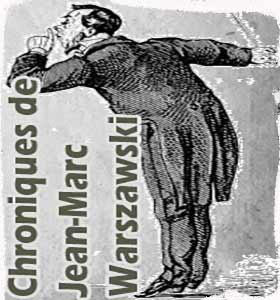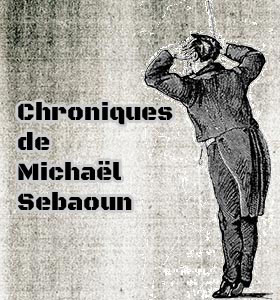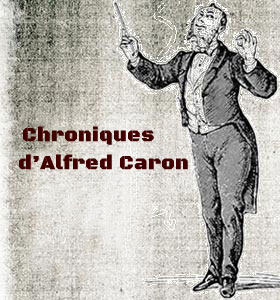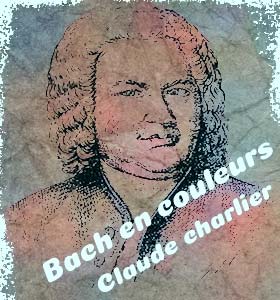Hans Zimmer : un nouvel Hollywood musical et sonore ?
25-26 avril 2017, Rouen
Colloque international organisé autour de l'œuvre de Hans Zimmer, en l'honneur des 60 ans du compositeur, Université de Rouen
Mardi 25 avril : Conférences, table ronde : les compositeurs contemporains français et Hollywoodiens (Maison de l'Université). Concert à 20h (Cinéma l'Ariel), à Mont Saint Aignan (Rouen)
Mercredi 26 avril : Conférences (Maison de l'Université)
Comité d'organisation et comité scientifique : Université de Rouen : Cécile Carayol, MCF (CEREdI/ELMEC : groupe de recherche collective sur la musique à l'écran), Pierre Albert Castanet, Pr. (GrHis) ; Remote Control : Henning Lohner, compositeur (et Steven Hofsky, producteur)
Liste des participants (conférenciers) : Michel Chion, Christian Halten, Pierre Funck, Stéphane Humez, Emmanuelle Bobée, Chloé Huvet, Jason Julliot, Jérémy Michot, Jérôme Rossi, Henning Lohner, Cécile Carayol
(Programme précis diffusé très prochainement)
Appel rédigé par Henning Lohner
Hans Zimmer (*1957) is generally acknowledged as one of the most influential contemporary composers bar none, his work having been heard by hundreds of millions of people around the globe, yet to this date no serious academic appreciation of his musical catalog has ever been undertaken. With a huge following in France – to the point that Zimmer in 2016 has dedicated more than 12 concerts to an audience of over 100.000 people all over France, the German-born, English-raised composer makes a well-defined case for a European idea of music understanding that has spread to the United States and through the venue of film throughout the entire world.
In Hans Zimmer we find a composer who recognized early in his development that sound synthesis and the application of filters is the key to a new form of music in which any musical source, form, or genre, can coexist in one space harmoniously at the same time, based on oscillatory proximity. This happens through understanding the constituents of how a tone is produced and how tone colors persist in a self-similar way in any medium, finding their corresponding colors in other media, thus building a unified sonic experience. Where Zappa has wandered the between the worlds of different genre's thereby resolving them, now Zimmer combines it all into one space/time experience, where – again - genre doesn't matter. Beyond that, Zimmer has produced both iconic pieces and a distinct personal style sonic investigations to the concert hall in a completely new form of unification in which orchestra, choir, electric band, samples, and synthesizers co-exist to forge one music that is not pinnable to any one expressive form, and at the same time revives the concert hall into one new, as yet unheard-of, completely new expressive form.
Hans Zimmer's music functions at a pivotal turning point in our awareness of what "quality" in music is, what we will take with us into the future from what we know of our past. We will be redefining the history of music, particularly in the 2nd half of the 20th century, in entirely new terms. The odd gap in Western music between 1920 and 1950 will be filled by George Gerschwin, Bernard Herrmann, and others. We will be including the likes of John Barry and Ennio Morricone, George Delarue and Prince into the pantheon of signifcant composers of the post war era. And, we will acknowledge composers, musicians, sound-makers, sound-"designers" and sound-reproducers, from around the documented world who deliver profound quality, regardless of where they come from.
The University at Rouen has made a pledge to support the most contemporary of modern music that is heard around the globe, not just in France. At Rouen, a place of musical research exists, not just of the history of music, but much more the future of it.
We propose:
The purpose of this symposium is to establish the first serious academic look at the work this composer has provided us with.
1-2 days of lectures and hands-on seminars, both transcribable for publication
The lectures would focus on different aspects of Hans Zimmer's musical and sonic innovations:
Ideation & Historic Perspective – an Overview and Comparison
- History of Music and the contemporary idiom
- Stockhausen, Cage, Xenakis, Varese, Pierre Schaffer, and Ligeti: the precursors
- Kraftwerk, Vangelis, et al.: the rise of electronica
- Gerschwin, Bernard Herrmann, John Barry, and Ennio Morricone: a parallel Universe
- Hans Zimmer in the context of different music histories : "classical music", "world music", "popular music", "electronic music"
Sonic Research & Experimentation
- Sound creation through synthesis
- Sound creation through sampling techniques (musique concrete)
- Creating new acoustic, electronic, and concrete instruments
- The interactive use of acoustic, electronic, and concrete sound
- Organization of sound on the time-space continuum
- Relationship, use, and integration of different sonic construction methods for the compositional process
Composition and Music Production
- The Hans Zimmer method of composition
- Analysis of the method itself; identification of key idioms
- Zimmer method in relation to composition techniques, historic & contemporary
- Zimmer composition in a global music world
- Music, sound, and post-Cagean sonic expression
- Composition and production as an integral approach to the constituents of music
- Melody, Harmony, Rhythm, and Tone-Color
- The space-time continuum and it's integral significance to contemporary music
- Music and it's role in film, in the 21st century
- The question of drama in music, visuals, and text
- Interactive and interdisciplinary music: Aspects of the Gesamtkunstwerk today
These are lead points; they can be differentiated further and further…




 À propos - contact |
S'abonner au bulletin
| Biographies de musiciens | Encyclopédie musicale | Articles et études | La petite bibliothèque | Analyses musicales | Nouveaux livres | Nouveaux disques | Agenda | Petites annonces | Téléchargements | Presse internationale| Colloques & conférences | Collaborations éditoriales | Soutenir musicologie.org.
À propos - contact |
S'abonner au bulletin
| Biographies de musiciens | Encyclopédie musicale | Articles et études | La petite bibliothèque | Analyses musicales | Nouveaux livres | Nouveaux disques | Agenda | Petites annonces | Téléchargements | Presse internationale| Colloques & conférences | Collaborations éditoriales | Soutenir musicologie.org.
Musicologie.org, 56 rue de la Fédération, 93100 Montreuil, ☎ 06 06 61 73 41.
ISNN 2269-9910.

Vendredi 3 Novembre, 2023

